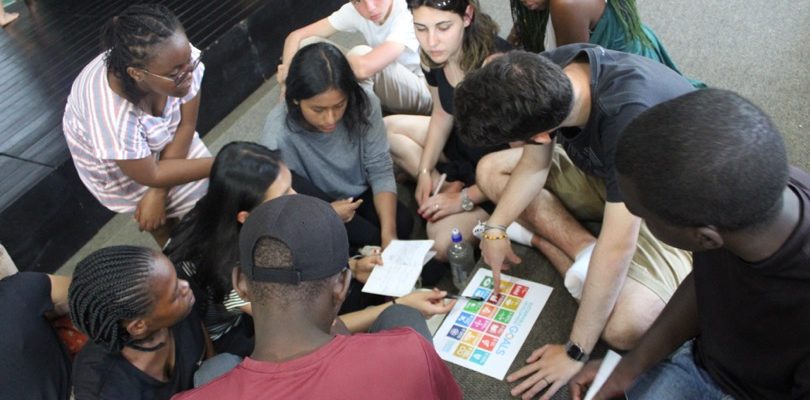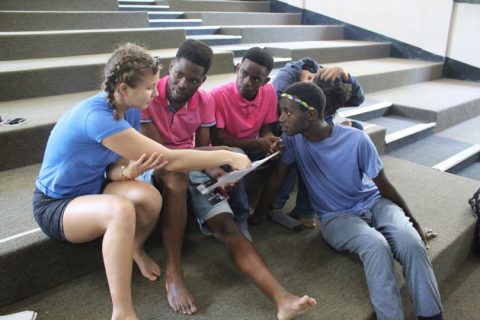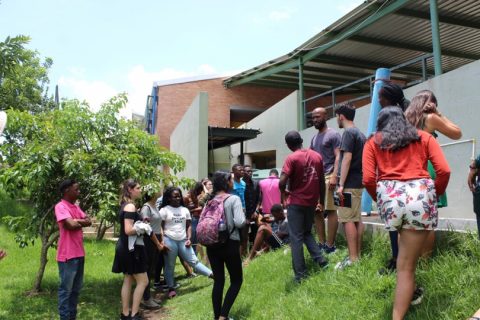
 Today was Environment and Sustainability Day, another topic you wouldn’t expect to be controversial with this group, but was. We started with a discussion about the Sustainability Development Goals, a set of noble and worthy global goals. But when we tried to prioritize them (as a country with limited resources might have to), we found there were no clear answers. Can you eliminate poverty before creating widespread peace? Should we protect the seas before protecting the land? Do environmental protections come before the rights of people to make a living?
Today was Environment and Sustainability Day, another topic you wouldn’t expect to be controversial with this group, but was. We started with a discussion about the Sustainability Development Goals, a set of noble and worthy global goals. But when we tried to prioritize them (as a country with limited resources might have to), we found there were no clear answers. Can you eliminate poverty before creating widespread peace? Should we protect the seas before protecting the land? Do environmental protections come before the rights of people to make a living?
As discussions on these topics got increasingly heated, we found participants recreating many of the dynamics that would occur in the real world. They bickered amongst themselves. They splintered into sub-groups. They shook their heads unbelievingly at each other’s “warped” priorities. And ultimately, they wondered at just how difficult it is to agree on even seemingly uncontroversial topics.
We then gave participants the tools to calculate their own environmental footprints and the consider ways they can make a difference, even at the most micro level. We considered, for example, how far all of us have flown to come to eSwatini, and the carbon emissions from our journeys. Before things seemed too doom and gloom, we then had a presentation on some exciting new innovations in sustainable energy. We ended the session with a visit to Waterford’s own biogas digestor that the campus uses to convert food waste from the cafeteria into energy to heat hot water for the dishwasher.
 Our afternoon session focused on agriculture. It’s an interesting topic to consider in the context of development, because for many people, agriculture is the antithesis of development. For them, agriculture is the old way, not progress. We considered how the agricultural sector often gets overlooked in development, as farmers have their land seized for development projects.
Our afternoon session focused on agriculture. It’s an interesting topic to consider in the context of development, because for many people, agriculture is the antithesis of development. For them, agriculture is the old way, not progress. We considered how the agricultural sector often gets overlooked in development, as farmers have their land seized for development projects.
Finally, we ended the day’s sessions with a mock debate in the South African parliament, where participants had to discuss whether or not to expand and open Kruger National Park to development projects. They heard from stakeholders including industry, tourism, poachers, local communities, and conservationists. Ultimately the group decided to expand the park to development, but not without considerable opposition.
We still have a lot of very tired people from the hike yesterday, so we’re ending the night early with a little extra free time. Hopefully participants get some good sleep tonight!